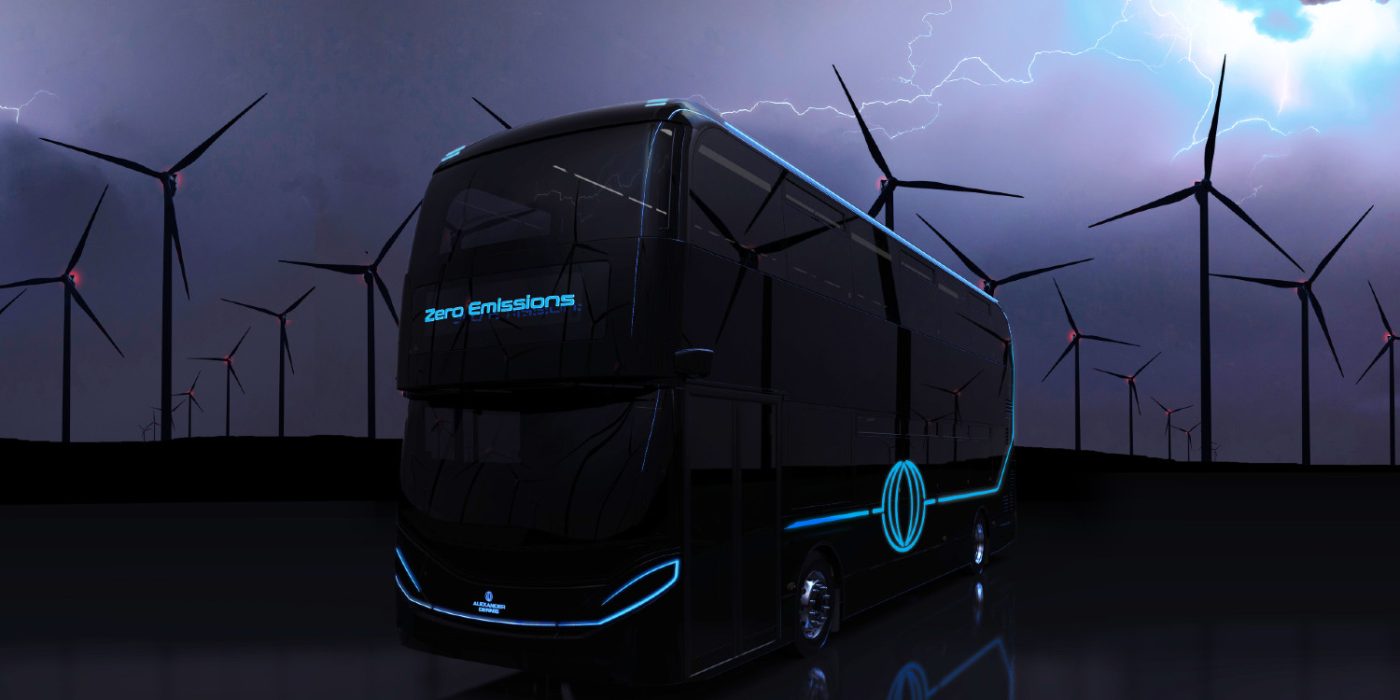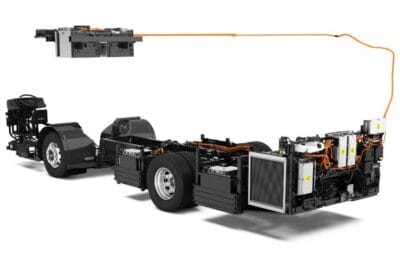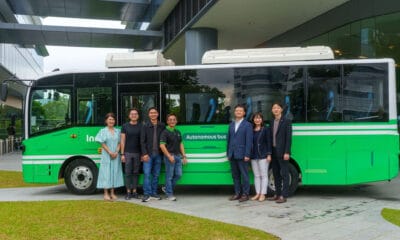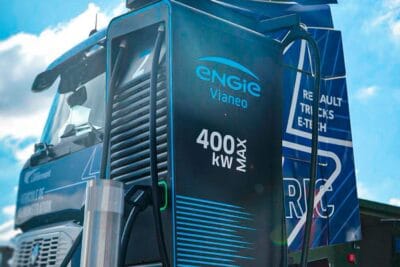ADL presents next-generation hydrogen bus platform
ADL has not yet revealed many details about the technical specifications but that they will equip the H2.0 with a fuel cell module from Ballard and the VEDS electric drive system from Voith. There will also be fewer H2 tanks with a higher volume on board. The model is built on ADL’s second-generation hydrogen platform, “which incorporates lessons learned from nationwide testing,” the company said.
ADL announced the Enviro400FC in November 2018 as the first dual-axle FC double-deck bus after more than two years in development. For this purpose, the British company cooperated with fuel cell system integrator Arcola Energy. Supplier ZF also acted as a technology partner, contributing its AxTrax AVE electric portal axle with integrated wheel hub drive and inverters and control components. They tested the prototype in several British cities.
The British website already lists only the successor to the H2 bus. “H2.0 is going to be a milestone for zero-emission technology with unrivalled efficiency that gives a class-leading range, perfect for high mileage routes that battery technology doesn’t cover”, said ADL President and CEO Paul Davies.
Incidentally, Northern Ireland-based bus manufacturer Wrightbus is also relying on Voith’s electric drive system, which is used in the new model. The company recently announced that it had selected Voith as the exclusive partner for the supply of the VEDS for the second generation of its battery-electric and fuel cell buses for Europe.
The German supplier says it has developed the VDES specifically for the requirements of public transport. The 340 kW electric motor is said to be capable of powering even double-decker, heavy articulated buses and trucks over long distances. The system also includes a water-cooled converter system, a drive management unit (called DMU), further converters for auxiliary units, and the on-board charging management system, including the cabling. Voith expects this to result in the highest possible efficiency, as all components are coordinated. Voith had announced the VDES in 2017 and provided the first details on the drive system a year later. In November 2020, the company also announced that Orten Electric-Trucks also relies on the VDES.
So now ADL is also switching to this propulsion system for its FC double-deckers. The H2.0 is developed and built in Great Britain. However, the American parent company NFI, which took over the Scottish bus manufacturer in 2019, has a major influence. As such, ADL announced that the new H2.0 platform for the FC double-decker “builds on the more than 25 years of hydrogen experience of New Flyer,” another subsidiary of the NFI Group.
The Group is considered North America’s largest bus manufacturer and increasingly relies on technology sharing among its subsidiaries. NFI owns the New Flyer, MCI, Plaxton, Arboc and Alexander Dennis Limited brands. For example, just a few days ago, Arboc unveiled a battery-electric low-floor bus with New Flyer’s electric drive technology for the North American market. Within the group, Arboc primarily covers the low-floor small and midibus segment.





0 Comments